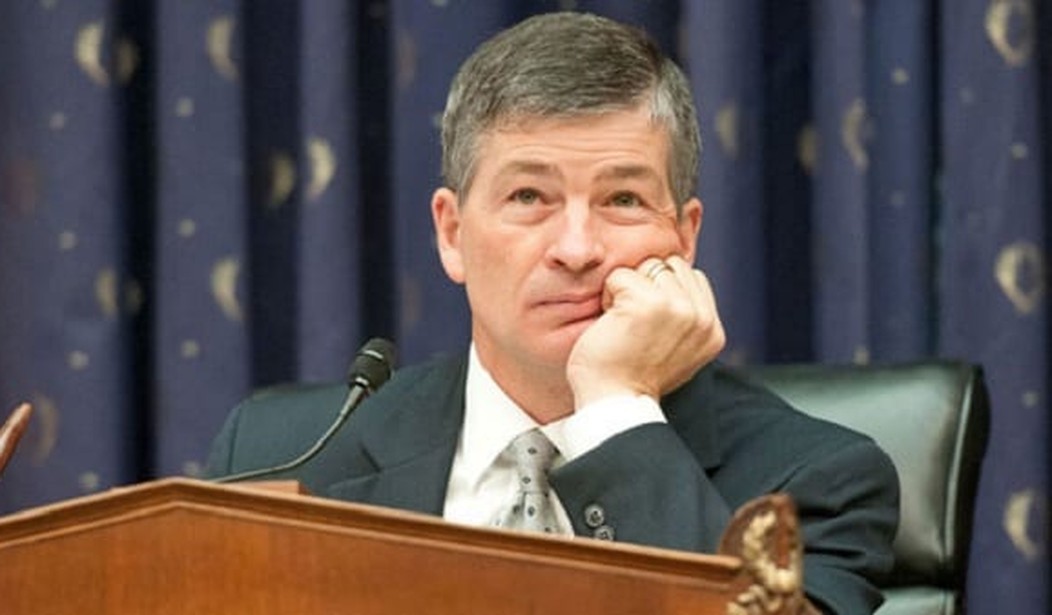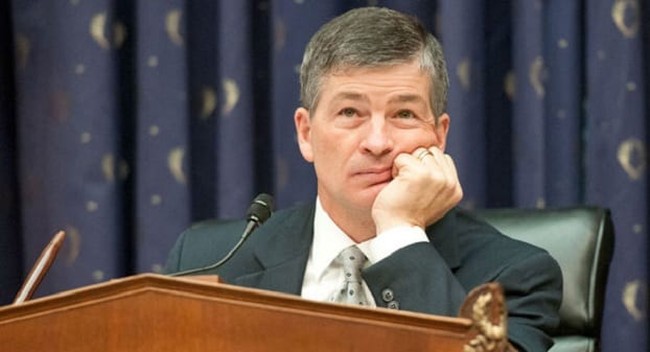The Export-Import Bank, the darling of K Street lobbyists, is up for reauthorization and there are encouraging signs that House Financial Services Committee Chairman Jeb Hensarling just might have his way and let it die.
The Ex-Im Bank is a chartered government corporation established by President Franklin Roosevelt that is responsible for providing “financing for transactions that would otherwise not take place because commercial lenders are either unable or unwilling to accept the political or commercial risks inherent in the deal.”
On paper, the bank is not supposed to compete with private financing and it is supposed to focus on small business. The reality is a lot different.
Crony Capitalism and Market Distortion
Of the top 10 nations receiving benefits from the Ex-Im Bank, only one, Papua New Guinea (see Table 1, Time to X out the Ex-Im Bank, Cato Institute), is a nation where conventional lenders would arguably be unlikely to make investments. Where nearly 90% of the loans guaranteed are to small businesses, the top three beneficiatries (Boeing, KBR, and General Electric) receive 72% of all loan guarantees. The top 10 beneficiaries receive nearly 93% of the total loan guarantees made by the Ex Im Bank.
One of the more pernicious effects of the Ex Im Bank, outside supporting crony capitalism here at home, is in distorting the markets is target countries in favor of huge state run enterprises. For instance, PEMEX, Mexico’s national oil company, was the number four beneficiary of the Ex Im Bank receiving about $1 Billion in loan guarantees.
Recently, the Ex-Im Bank concluded a deal with Russian oligarchs who prop up the regime of Russian strongman Vladimir Putin:
Last fiscal year, the bank authorized $629,854,155 to Russia-related transactions, according to its own reports. Such loans come at a time when America’s foreign policy apparatus is reprimanding Russia with targeted sanctions for its unilateral actions violating Ukraine’s sovereignty. The president announced the sanctions by declaring that we must make it “clear that there are consequences for their actions.” But the bank’s pledge to support up to one billion dollars in U.S. exports to buyers in Russia and a “process of joint cooperation between Ex-Im and Sberbank,” which happens to be Russia’s largest financial institution, muddles the administration’s stance and undermines the president’s executive authority.
Russia’s provocative agenda has resulted in President Obama threatening additional sanctions that would reportedly target the nation’s entire energy industry. But such a policy – once again – would be inconsistent with Ex-Im’s past support of the former communist nation’s energy sector. Just last year, the Ex-Im generously approved a loan worth more than $32 million to help a company build a petroleum refinery in Russia. This loan does more than create commerce in the country; it also helps Russia gain even greater control over the region where it currently holds various client states hostage with its energy dominance. Foreign policy experts often assert this very fact and Ex-Im’s loans are providing Russia with more resources to do so.
In addition to large state monopolies and Russian oligarchs, the Ex-Im Bank has been linked to financing front organizations for Mexican narco-cartels:
The probe originally revealed that small business loans sponsored by the Export-Import Bank of the United States were made to non-existing companies for equipment that wasn’t even real.
Now, New 8 has discovered that some of the people who got the Ex-Im Bank loans may have drug connections. The $243 million worth of bad loans were originally made to help trade with Mexico.
The loans have been linked to the Juarez drug cartel, which is known for its brutal murders. The cartel killed one dozen people and buried them in a suburban backyard across the border fro El Paso.
Another loan was linked to the Sinaloa drug cartel, whose business is smuggling heroin into the United States.
The federally funded Ex-Im Bank apparently backed loans to people affiliated with both cartels and the Mexican drug trade.
Cato Institute concludes:
In sum, none of the reasons offered for the Ex-Im Bank’s continued existence are convincing. Private credit markets are far deeper and are more accessible today than when the bank was created in the 1930s. The Ex-Im Bank’s resources are mainly used to assist large corporations that have little trouble obtaining their own private financing. Export subsidies do not increase employment overall, nor do they have any substantial impact on the trade balance. Finally, it is simply not fair for the government to pick and choose certain businesses to subsidize at the expense of other businesses and the broader economy.
A Test of Principle
The Ex-Im Bank has become an important issue to House conservatives who are trying to adhere to the free market principles. According to Utah Senator Mike Lee:
The question is whether Republicans’ Obama-era opposition to policy privilege has been sincere or situational.
One test will be this summer’s expiring congressional authorization of the federal Export Import Bank. The Ex-Im Bank exists to dole out taxpayer-backed loan guarantees to help American exporters. Most of the benefits go to large corporations that are perfectly capable of securing private financing anywhere in the world.
In short, Congress allows the Ex-Im Bank to unnecessarily risk taxpayer money to subsidize well-connected private companies. President Obama himself called the program “little more than a fund for corporate welfare” back in 2008, when total taxpayer exposure to Ex-Im Bank guarantees was less than half its size today.
Whether the beneficiaries of particular Ex-Im Bank loan guarantees are respected, successful companies like Boeing or crony basket cases like Solyndra is irrelevant. Twisting policy to benefit any business at the expense of others is unfair and anti-growth.
Promising Signs
Jeb Hensarling has shown himself willing to take a hard stand on matters of principle. He attempted reforms of the National Flood Insurance Program over objections of the House leadership and ultimately lost that battle. What Hensarling has demonstrated is that defeat is a temporary condition; you are only beaten when you give up.
Unwilling to undergo another costly fight, House Majority Leader Eric Cantor has signaled that the leadership will not go to the mattresses to save the Ex-Im Bank:
A debate over reauthorizing the Export-Import Bank is threatening to deepen tensions between House conservatives and the Republican leadership, prompting Majority Leader Eric Cantor (R-Va.) to tread carefully after striking a deal with Democrats in 2012.
The authorization for the bank expires at the end of September, but the chairman of the Financial Services Committee, Rep. Jeb Hensarling (R-Texas), is already trying to rally conservatives against the move after watching the leadership sidestep his committee on a flood insurance bill earlier this year.
Cantor, meanwhile, has privately told members he does not intend to get involved this time around, a message that some see as an indication that he is weary of battling conservatives angered by a number of his recent legislative moves.
The Backdoor to Campaign Finance Reform
The Ex-Im Bank, like so many government programs and the road to Hell, is full of good intentions. It has turned out to be a cesspool of potential corruption and cronyism as large corporations vie with each other for access to free government money. This feeds the lobbying interests and, in turn, leads to the mountains of cash we see flooding into political campaigns.
By eliminating piggy bank programs like the Ex-Im Bank Congress can take an easy and obvious step towards reducing the impact of money and lobbyists on politics.














Join the conversation as a VIP Member